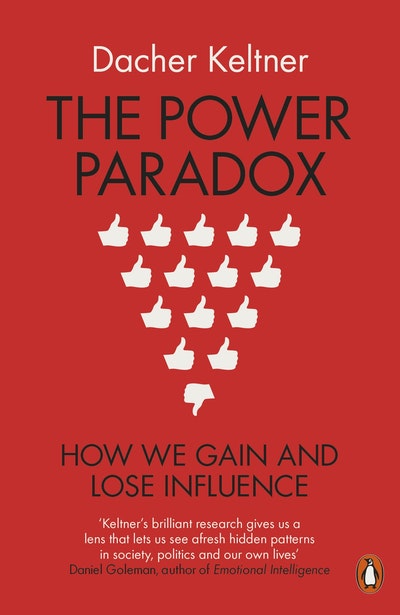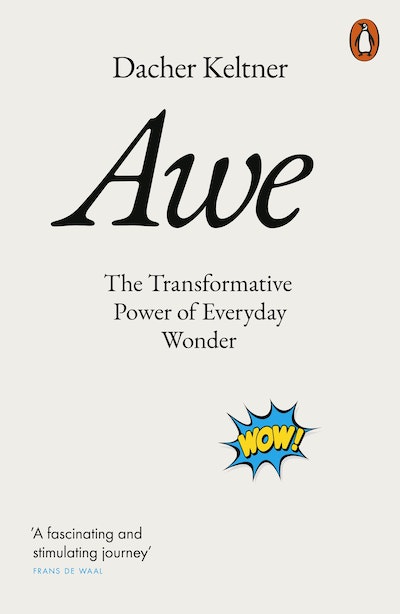- Published: 17 July 2017
- ISBN: 9780718197636
- Imprint: Penguin Press
- Format: Paperback
- Pages: 208
- RRP: $24.99
The Power Paradox
How We Gain and Lose Influence
- Published: 17 July 2017
- ISBN: 9780718197636
- Imprint: Penguin Press
- Format: Paperback
- Pages: 208
- RRP: $24.99
There cannot be many business school academics with a hotline to Hollywood. But Dacher Keltner has become something of a go-to guy for Tinseltown since advising on Inside Out ... Prof Keltner is in demand for his work on decoding emotions, which has culminated in a book explaining how people gain and lose power, based on the studies of executive behaviour he has undertaken over 20 years
Financial Times
Lively and intriguing ... The Power Paradox delivers a much-needed dose of positivity in the study of how managers and leaders can get the best out of their workers and populations
Prospect
The Westminster old guard sat all around him may not realise it, but Dacher Keltner and his ideas may pose a severe challenge to their way of doing business. And it gets worse: as he and his cohorts render them obsolete, they will rub it in by being nice to them
Archie Bland, Guardian
Dacher Keltner is the most interesting psychologist in America. He's busy changing the minds of Americans about how power works, how inequality works. It's only a matter of time before his ideas spread everywhere. And unlike most psychologists I know, he's not a weirdo
Michael Lewis, author of 'The Big Short', 'Flash Boys', and 'Boomerang'
The Power Paradox brings clarity to our confusion, brimming with evidence-based insights into powerlessness, the selfish uses of power, and the best kind: power that furthers the greater good. Dacher Keltner's brilliant research gives us a lens that lets us see afresh hidden patterns in society, politics, and our own lives. No doubt this will be one of the most significant science books of the decade
Daniel Goleman, author of 'Emotional Intelligence' and 'A Force for Good: The Dalai Lama's Vision for Our World'
Keltner shares insights into many aspects of power, including afternoon tea in Britain and how Lincoln won the presidency ... Provocative and intriguing
Sheryl WuDunn, Pulitzer Prize-winning journalist and author of 'Half the Sky: How to Change the World'
That power is not taken but given is true for most human relations today. It has ancient roots in primate behavior. Dacher Keltner applies a lifetime of research to this topic, offering a lively description of how true power is like a return on a social investment in others
Frans de Waal, author of 'Are We Smart Enough to Know How Smart Animals Are?'
With personal insight and the latest science, Keltner is both realistic and idealistic: The Power Paradox sheds light on human power's dark side, as well as its redeeming qualities. Everyone can learn from this wise book
Susan T. Fiske, Professor of Psychology at Princeton and author of 'Social Cognition'
Dacher Keltner's focus on power as doing good for others is a refreshing change from a Machiavellian perspective and helps us to better understand what the - much more fulfilling - target of ambition should be
Kate Pickett, co-author of 'The Spirit Level'




